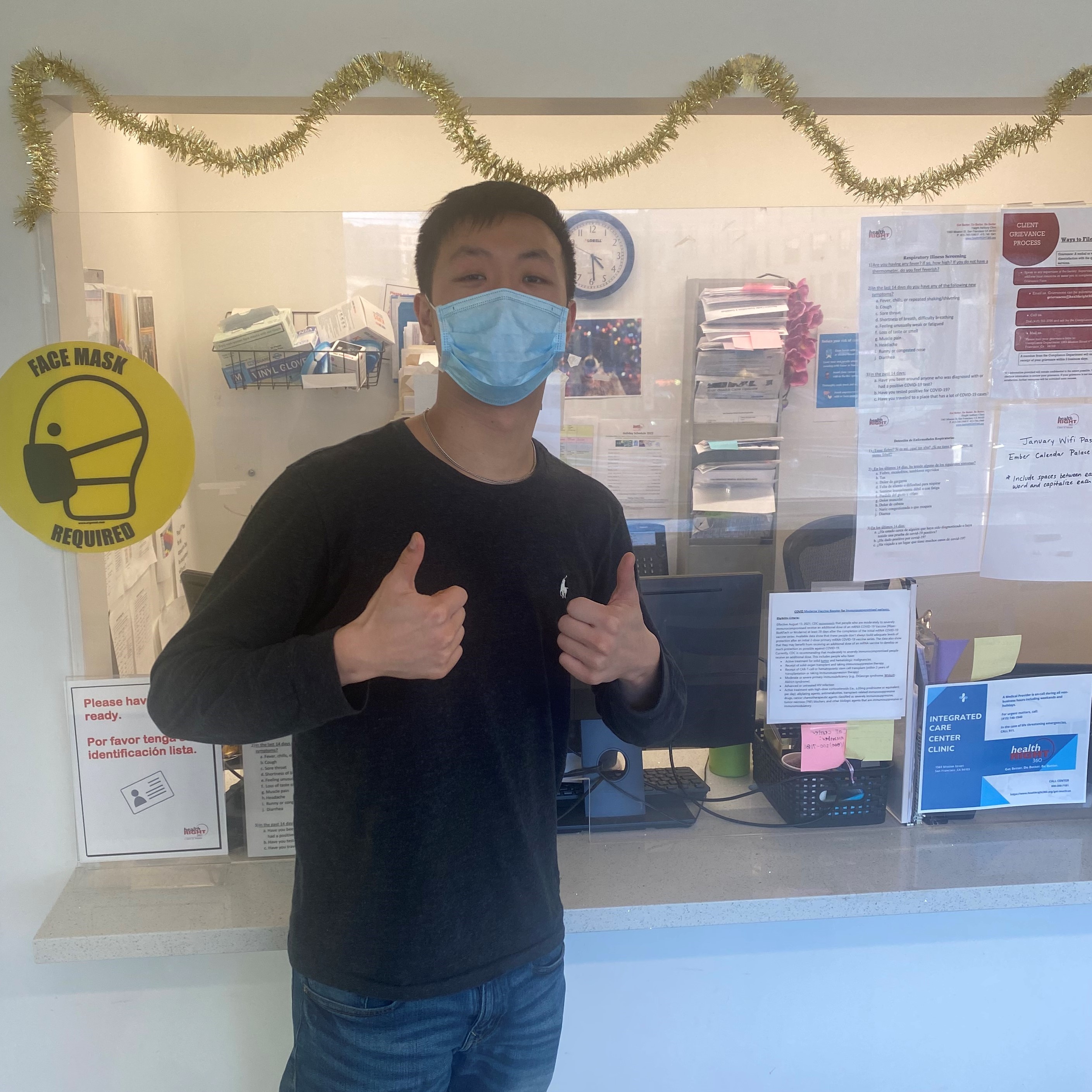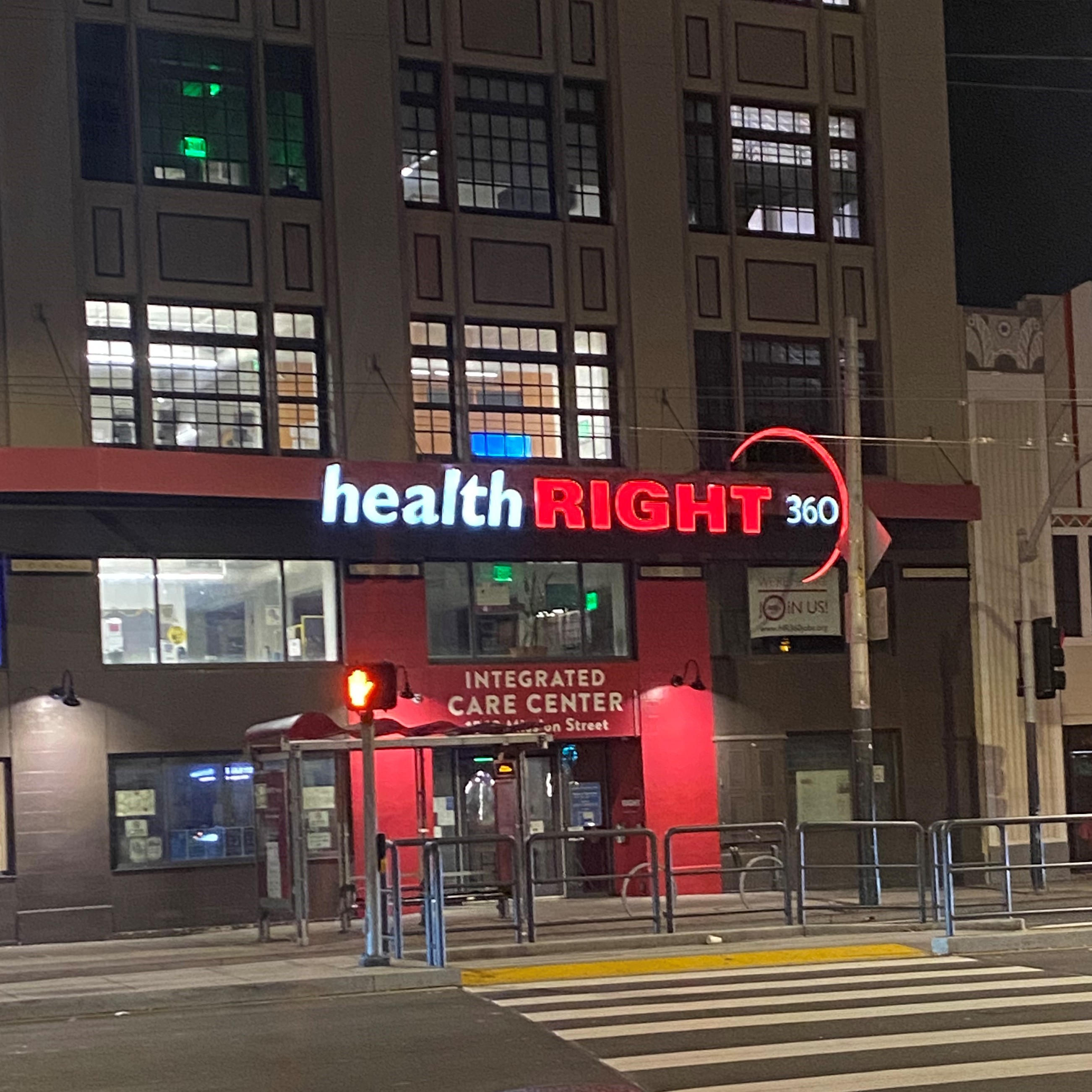Four Lessons and Reminders From My Service Term
Hello! My name is Michael Zhu (he/him), and I am from Seneca, South Carolina. I have been serving at HealthRight 360 as an Opioid Use Disorder Care Coordinator. Specifically, I am located at the integrated care clinic in San Francisco – designed to serve low-income and homeless populations. Our clinic provides comprehensive services, providing access to physicians, social workers, therapists, and more. Five months into my service term, here are some takeaways I hope you find helpful:
 According to the UK’s National Health Service, addiction is “not having control over doing, taking or using something to the point where it could be harmful to you,” so it can range from using drugs, shopping, eating, and more. Addiction medicine specialist, Gabor Maté believes that instead of asking what’s wrong about addiction, we should ask what’s right about it. Addiction fills a literal and metaphorical hunger when people’s needs are unmet. Qualitative studies have shown that the stigma associated with substance use disorders contributes to people feeling that they have failed morally. However, remember that drug addictions are just one of the many addictions that exist, and anyone can have one. The divide between patients and healthcare providers is not as wide as it seems.
According to the UK’s National Health Service, addiction is “not having control over doing, taking or using something to the point where it could be harmful to you,” so it can range from using drugs, shopping, eating, and more. Addiction medicine specialist, Gabor Maté believes that instead of asking what’s wrong about addiction, we should ask what’s right about it. Addiction fills a literal and metaphorical hunger when people’s needs are unmet. Qualitative studies have shown that the stigma associated with substance use disorders contributes to people feeling that they have failed morally. However, remember that drug addictions are just one of the many addictions that exist, and anyone can have one. The divide between patients and healthcare providers is not as wide as it seems. - As an AmeriCorps member, we can attend lectures and training to enrich our service term. While understanding other people’s perspectives is important, don’t forget to back it up with action. For example, you may have heard about implicit bias – how unconscious attitudes impact our thoughts, feelings, behaviors. Studies show that implicit bias training can have adverse consequences, including people feeling like they are less vulnerable to bias once learning about it. However, trainings that include concrete, evidence-based strategies on changing behavior can produce positive, long-term effects. Sometimes at my host site, I fail patients despite my best intentions, so be mindful that we can always take steps to improving patient care as we all have the capacity to change and cultivate empathy.
 In December, a woman went viral for finding a Costco receipt and scolded the owner for spending hundreds on luxury food items using SNAP, which are monetary benefits that “supplement the food budget of needy families.” As an AmeriCorps member, we receive a living stipend and qualify for government assistance like SNAP. Studies with nationally representative samples show strong associations between increased financial worries and psychological distress. In a culture that rewards constant working, it’s easy to forget that everyone deserves to feel comfort and afford themselves occasional luxuries.
In December, a woman went viral for finding a Costco receipt and scolded the owner for spending hundreds on luxury food items using SNAP, which are monetary benefits that “supplement the food budget of needy families.” As an AmeriCorps member, we receive a living stipend and qualify for government assistance like SNAP. Studies with nationally representative samples show strong associations between increased financial worries and psychological distress. In a culture that rewards constant working, it’s easy to forget that everyone deserves to feel comfort and afford themselves occasional luxuries. - On the topic of self-care, I continually see the pressures placed upon healthcare workers. They must juggle expectations from patients, leadership, coworkers, and themselves. Unfortunately, placing too much emphasis on people’s acceptance and validation is associated with poorer health. Nothing is wrong with feeling responsibility and concern for others; however, ensure those traits are authentic rather than stemming from a desire to solely please others. Take care not to deny yourself feeling your emotions.
Overall, all these lessons show that the world is not black and white. If a patient was not taking their medications, it may feel frustrating as a healthcare provider. It may seem simple to you that taking a medication as prescribed can improve a patient’s condition, but does that view change if you learned that a patient’s distrust of others stemmed from childhood trauma? We are all unique, equipped with distinct genetic makeups and sociocultural histories, yet amazingly similar at the same time. I believe understanding these complexities will make anyone not only a more compassionate healthcare provider, but a more understanding and forgiving human.